Corporate phone - like a Swiss knife: for inventory, chat, support calls and inquiries
We, the development team, are doing Leroy Merlin's corporate services. And we have one advantage, which few developers can boast of: each employee of the company has a phone where it all starts.
That is, we can be sure that if tomorrow there is a release of the application for inventory, then all users will receive it. And they can use it instantly.
I want to talk about this ecosystem of applications and what employees do with them in the store and in the office. This is what the phone screen looks like:
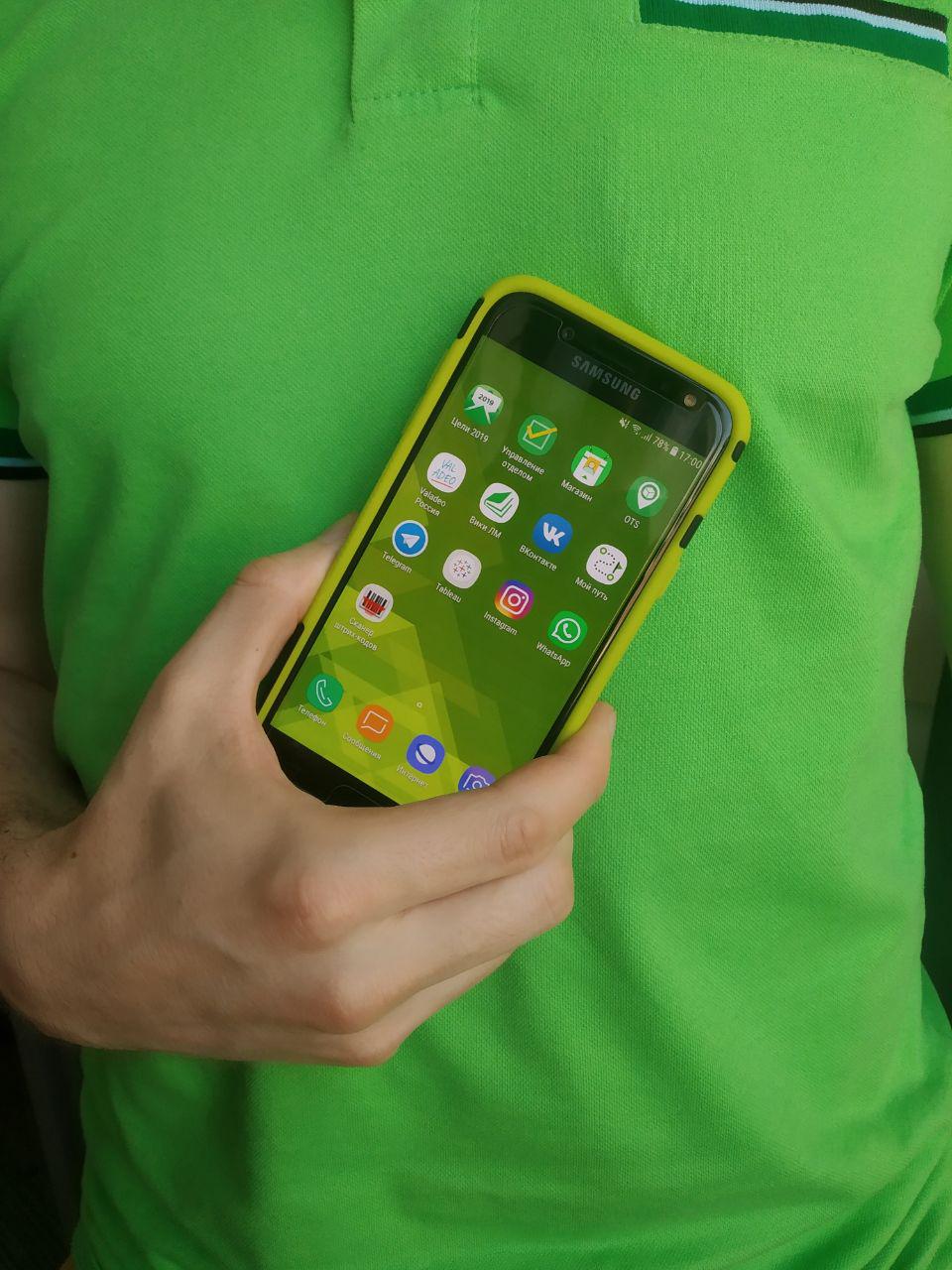
As you can see, here corporate applications coexist with social networks, Telegram and other “household” set. We encourage the use of instant messengers and social networks from corporate devices. In principle, we do not track users and do not access their data (French privacy policy in MDM is approximately at the level of GDPR).
According to our observations, when an employee has a working Telegram and VKontakte on the phone, he begins to more effectively use the applications that he needs to work.
In 2017, we tested the introduction of smartphones for each employee in three stores. These were the most basic applications and web versions of the main data from the portal.
In 2018, there was a rollout to all Leroy Merlin stores. This is a project in which each employee was given a phone with basic applications.
The buyer’s retail application was installed first: the client went to the store with him and showed him what he wanted to the sellers and consultants. Sometimes the employee did not know how to quickly see a particular product on the site. With the application it became possible to quickly navigate.
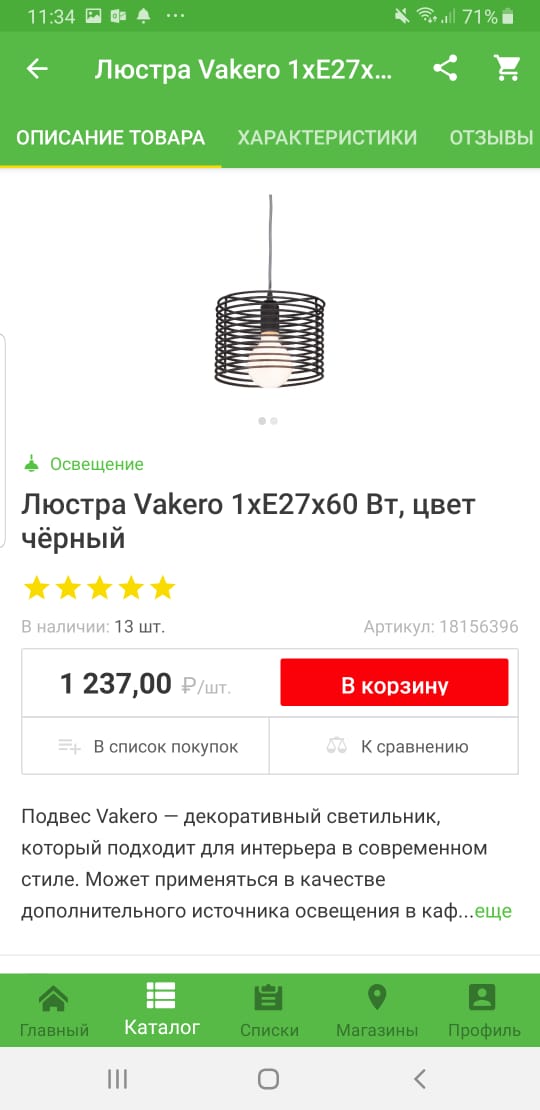
The second application was with support contacts: you click on the icon, the phone gets out, where to call in what situation.
Survey application. This is an implementation of direct democracy: sometimes we need to interview each employee in order to make some kind of decision. For example, what is better is a complete, but not very large set of social guarantees with gym compensation or incomplete, but with the ability to choose one or two directions, where to invest from unused opportunities, etc. For example, arrange VHI for children, abandoning the gym and more.
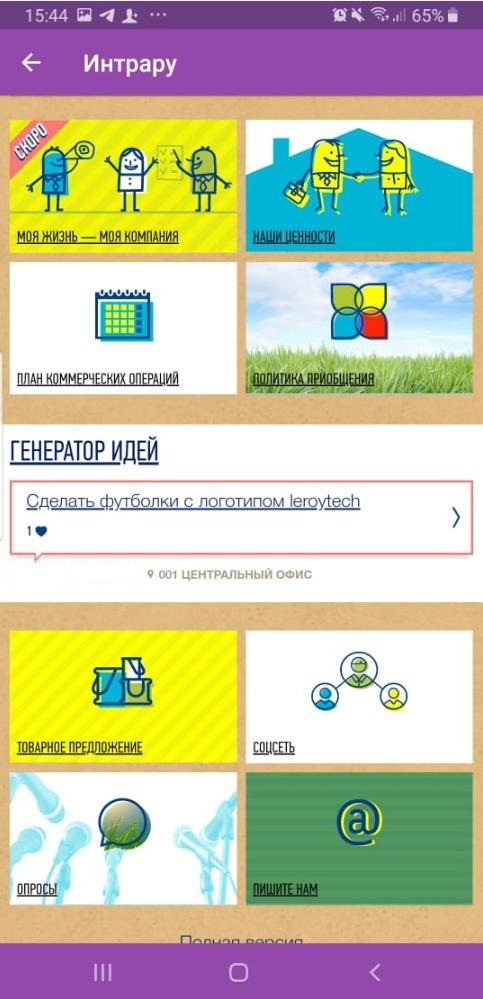
Retail seller app. There is no training on a product that does not expire in a month. A client has come, asks. The seller can get the unit from the data on the product (where, how much, for example, the location in the warehouse, on the window, in the drive) and can accurately answer.
The application makes it possible to see the availability, characteristics, price of goods, including the purchase, the availability of goods in a nearby store, to issue a sales document every day. You can see the supply plan, sales history, create a movement from the warehouse to the trading floor. You can calculate the amount of goods.
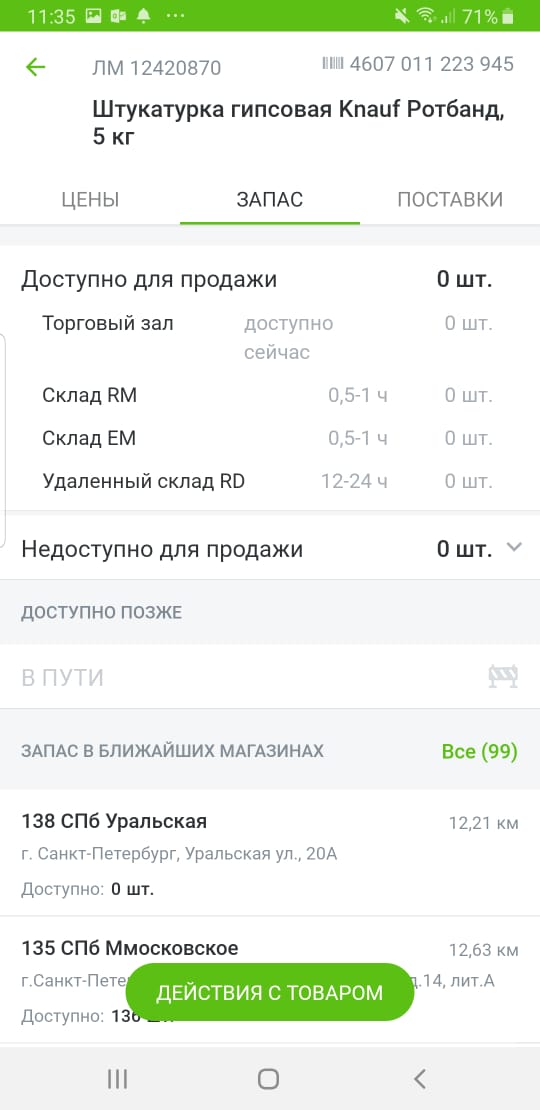
Making a move when you're standing right in front of a shelf is priceless:
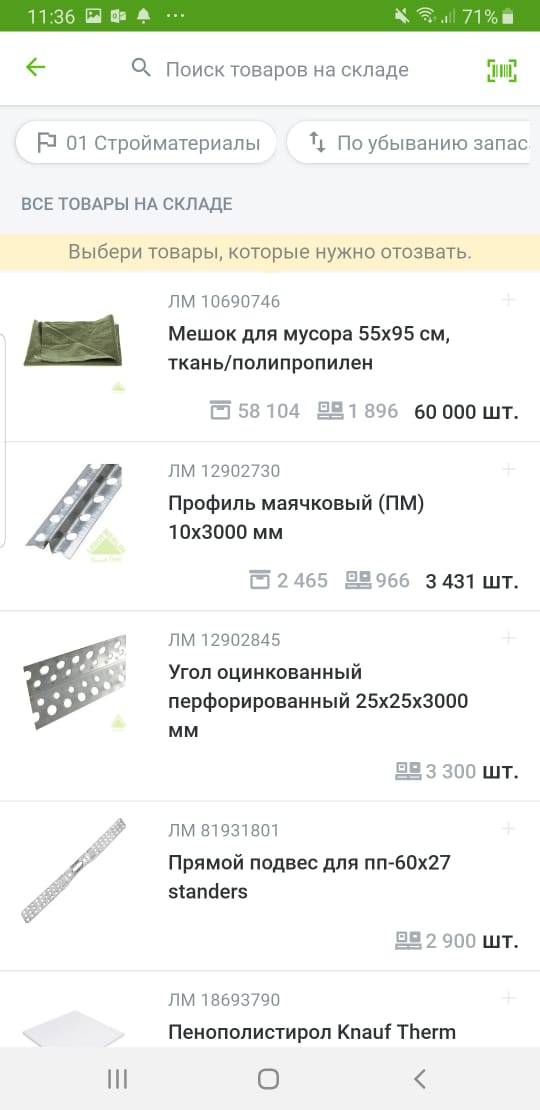
WhatsApp.It was decided that fighting messengers is not only useless, but also harmful. As a result, now employees communicate through it with relatives and friends and at the same time very quickly receive data on the store, any operational information and HR team mailings. In stores, groups were created by department. Current issues are quickly discussed there - for example, “special filing is delayed,” someone asks where to get which document, and so on. Someone does it in the Telegram, someone from Vatsapa-radio, when it is inconvenient to type. All this helps a lot in work.
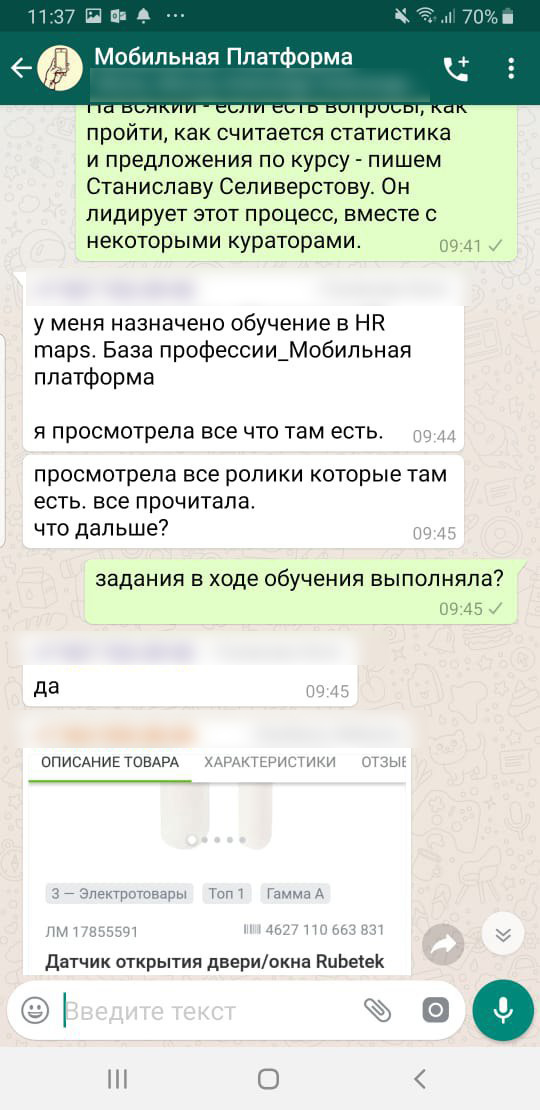
Training and knowledge base - you can search for any information.
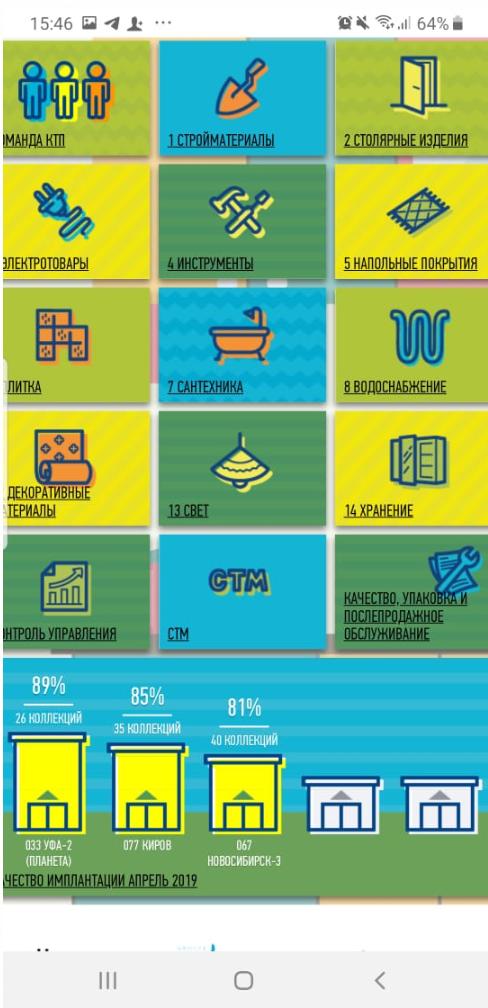
Mini inventory(reliability of inventory). A higher-level system generates a list of goods with anomalies (for example, they are listed, but have not been sold for quite some time), and then one of the employees has the task of investigating the incident. Or here is the stock of goods left in the red - you need to figure out what happened. An employee is going to take into account the goods, and the phone can be used right away as a barcode scanner (I had to climb into the low level of working with the camera in the application to make it work really quickly).
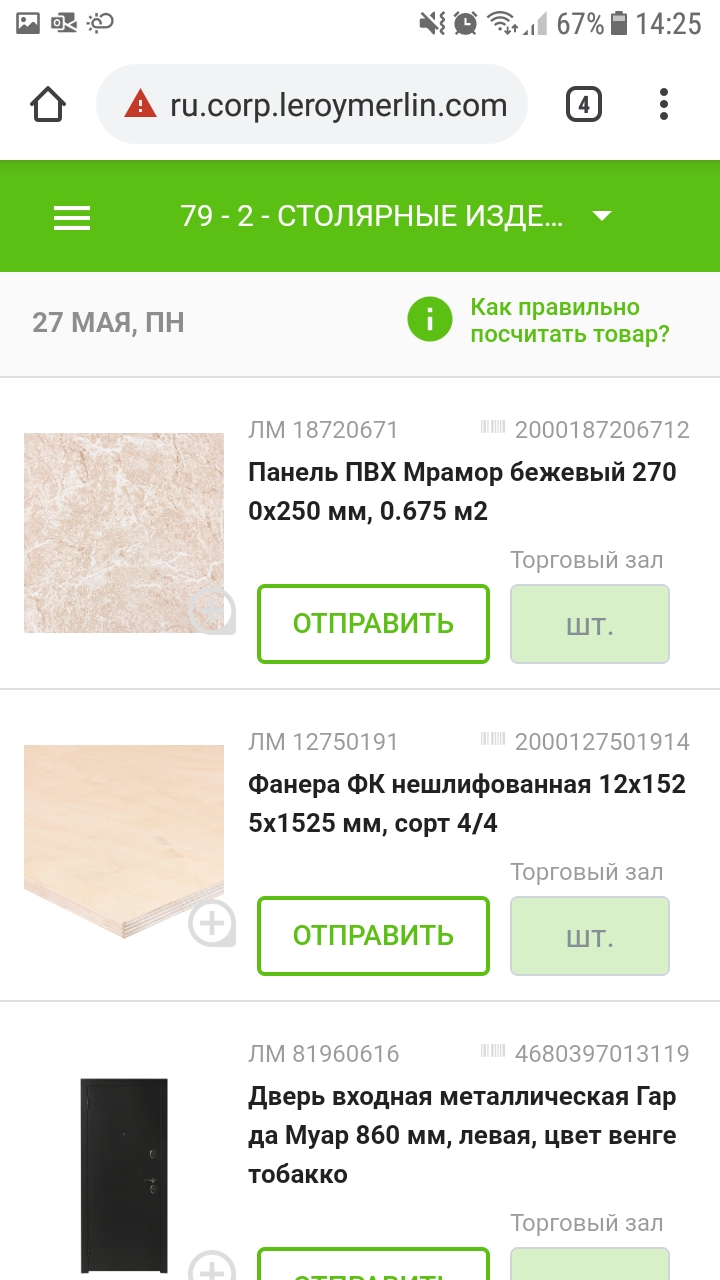
Large inventories and stock adjustments:

Large inventories are carried out in the fall, once a year. Last year, TSD - pieces of iron with a distant laser scan were used in parallel:
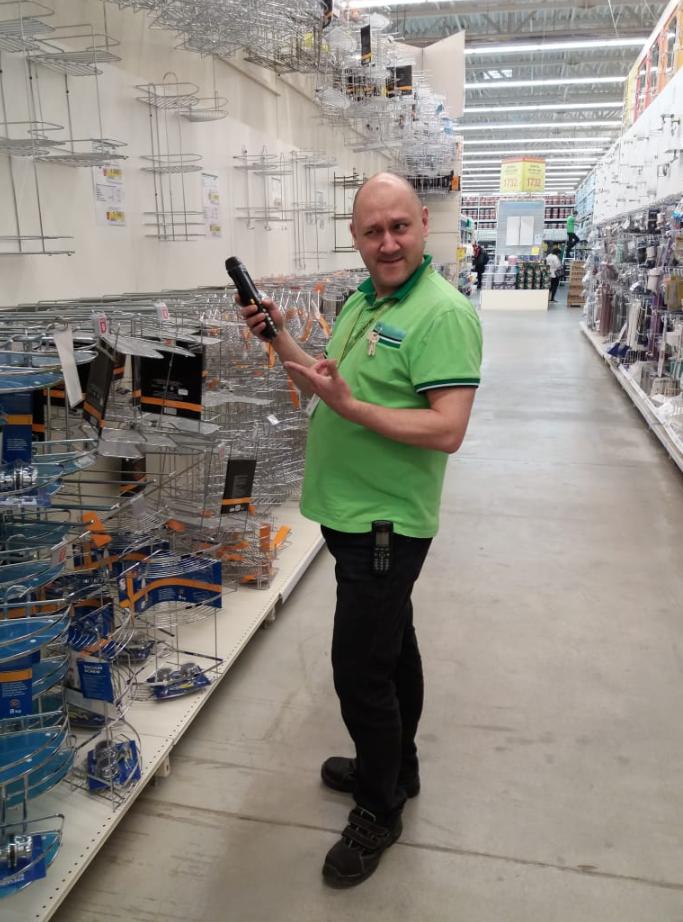
But they have a limited area of use, so several stores (three points of test operation) also used phones. The next large inventory will be carried out with phones in all stores.
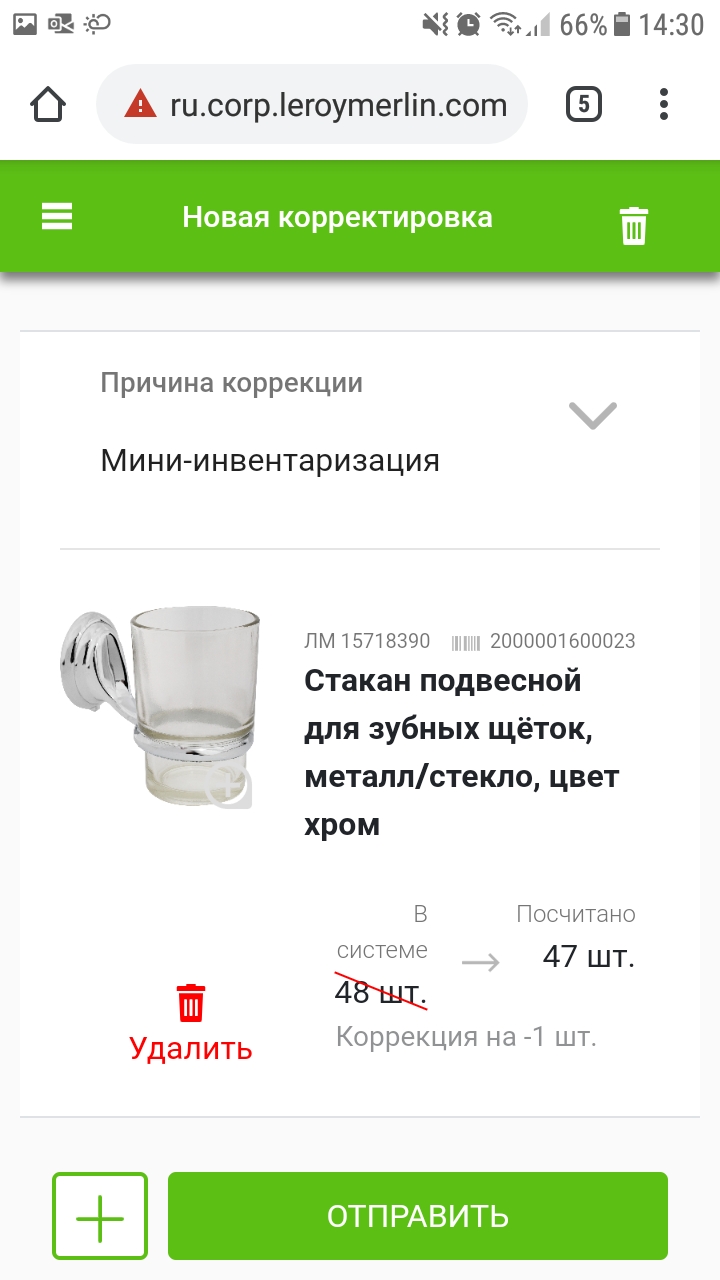
Social network. They help to increase the level of computer literacy of users. When a person confidently understands how to communicate with relatives through the VKontakte application, he will receive a certain background of clicking on different buttons, managing different interface elements, and so on. It is clear that the office does not need this, but in stores the level of ownership of a corporate telephone is sharply increasing.
Any department can make a mobile interface for its tasks:
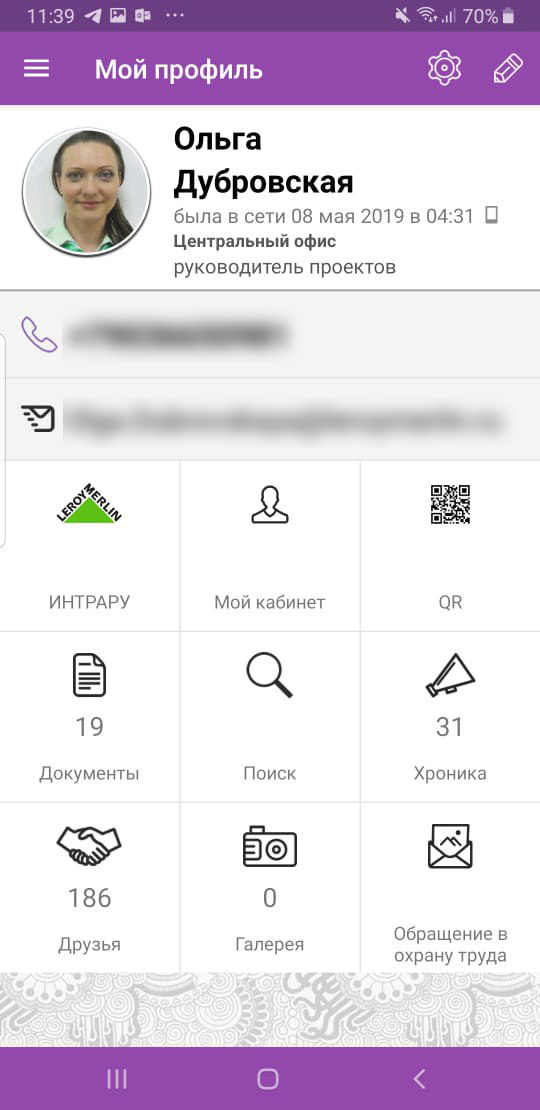
So you can find a person on the portal.
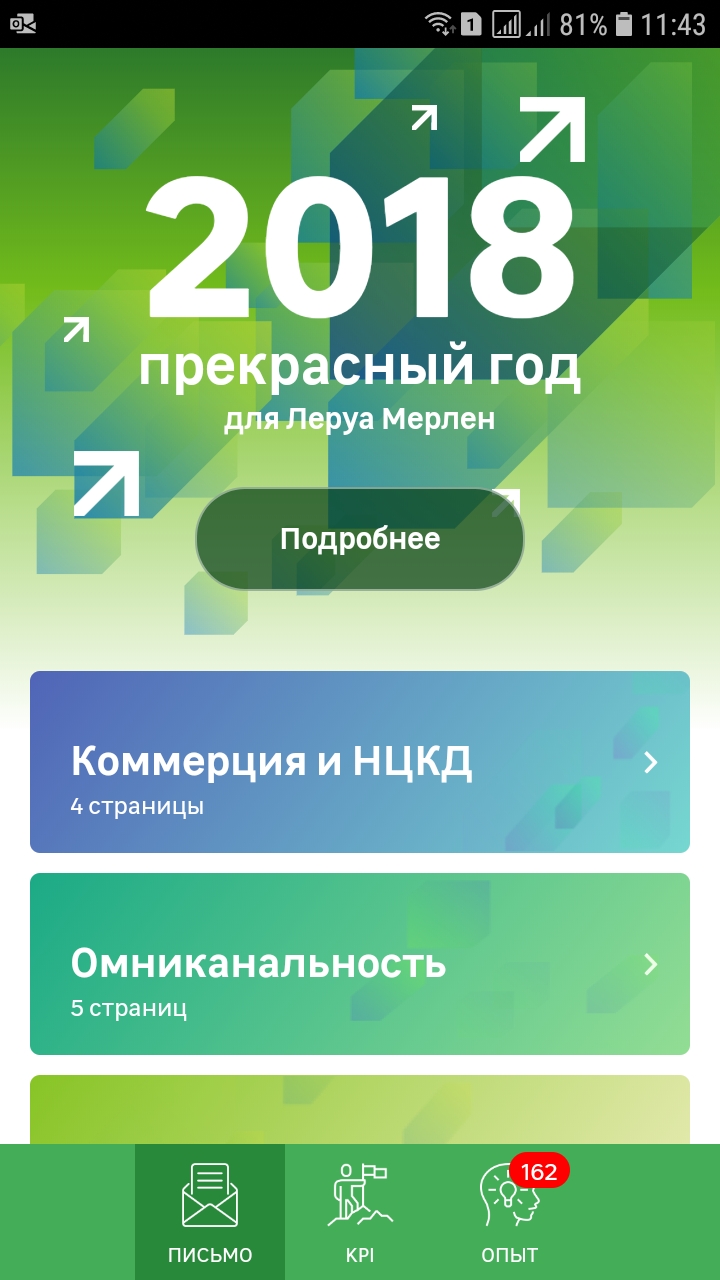
Or see the status.
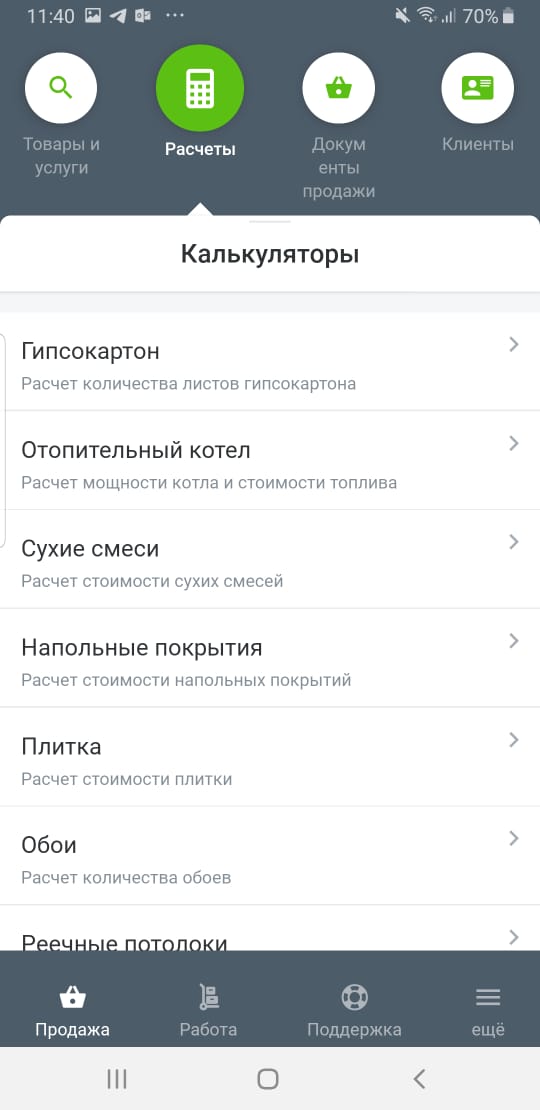
Or count repair at the client.
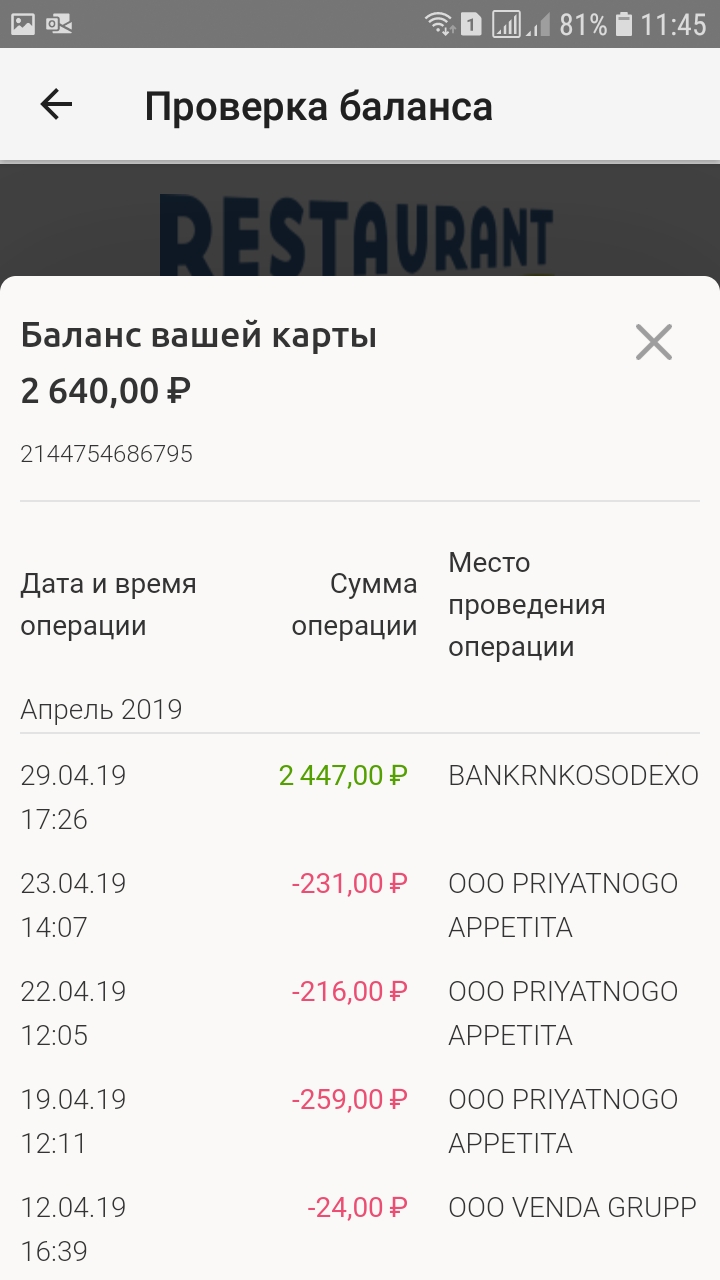
Payment for lunch with a corporate card. You can monitor your expenses.
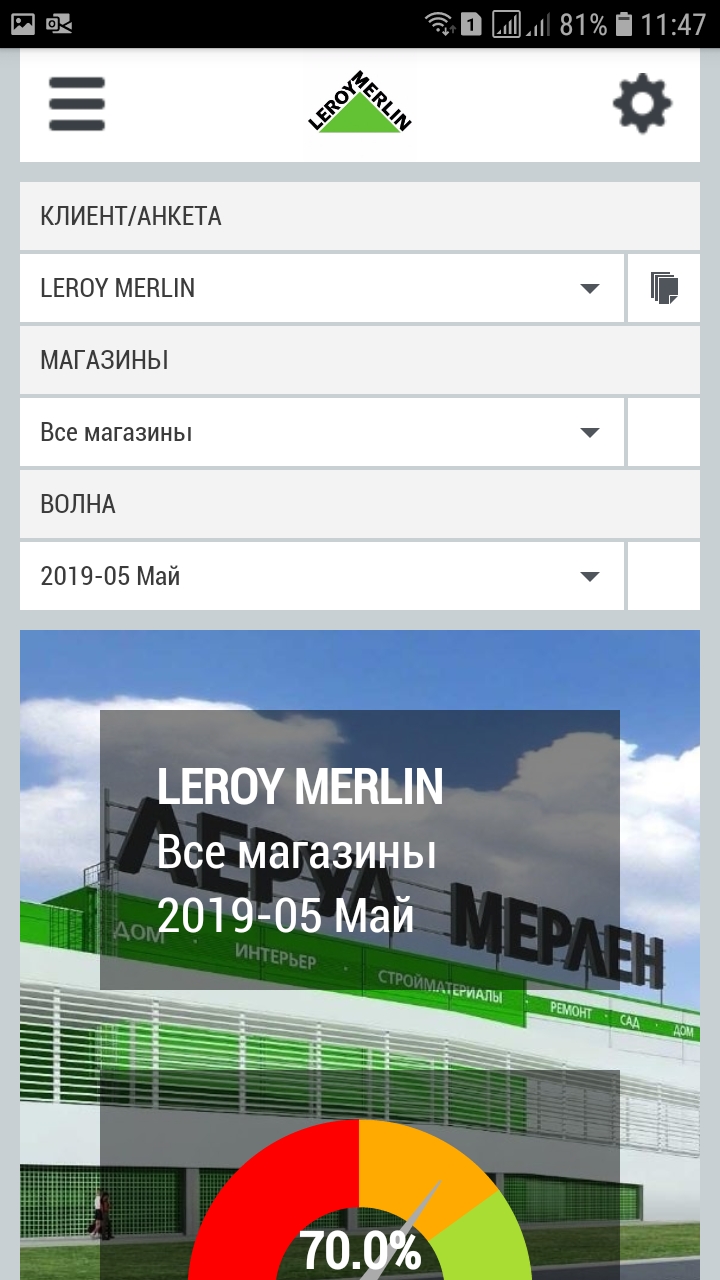
The results of checks by a secret buyer.
In addition to the access point to the company's services, we also got the opportunity to instantly inform employees. They thought it would be centralized, but it turned out to be even more interesting.
The employee enters the store group in the messenger and is always in the subject of what is happening in the store. In the subject of new collections and goods. This is a free opportunity to learn, because they see each other's questions and answers. They see what questions customers will ask at the meeting.
Many stores hold workshops on products, and they go live on Instagram. Any client can watch a birdhouse, a cat house or an analog liquid computer from sewer pipes (actually, they haven’t reached this point yet). And their own employees join such broadcasts for training.
Phones help update the store’s social networks: employees show that interesting things have appeared in the store right now.
In general, in addition to the obvious results in the spirit of "access to IT services for everyone," we got a lot of unobviously good.
It began with the fact that we have many employees without computers who go shopping and touch the goods. It was quite difficult to come up with a mobile terminal for them for every occasion, so we gave everyone corporate smartphones as jobs. And now I am confidently saying: they have become truly mobile jobs. And not only.
That is, we can be sure that if tomorrow there is a release of the application for inventory, then all users will receive it. And they can use it instantly.
I want to talk about this ecosystem of applications and what employees do with them in the store and in the office. This is what the phone screen looks like:

As you can see, here corporate applications coexist with social networks, Telegram and other “household” set. We encourage the use of instant messengers and social networks from corporate devices. In principle, we do not track users and do not access their data (French privacy policy in MDM is approximately at the level of GDPR).
According to our observations, when an employee has a working Telegram and VKontakte on the phone, he begins to more effectively use the applications that he needs to work.
How did it all start?
In 2017, we tested the introduction of smartphones for each employee in three stores. These were the most basic applications and web versions of the main data from the portal.
In 2018, there was a rollout to all Leroy Merlin stores. This is a project in which each employee was given a phone with basic applications.
The buyer’s retail application was installed first: the client went to the store with him and showed him what he wanted to the sellers and consultants. Sometimes the employee did not know how to quickly see a particular product on the site. With the application it became possible to quickly navigate.

The second application was with support contacts: you click on the icon, the phone gets out, where to call in what situation.
What kind of kit is it now?
Survey application. This is an implementation of direct democracy: sometimes we need to interview each employee in order to make some kind of decision. For example, what is better is a complete, but not very large set of social guarantees with gym compensation or incomplete, but with the ability to choose one or two directions, where to invest from unused opportunities, etc. For example, arrange VHI for children, abandoning the gym and more.

Retail seller app. There is no training on a product that does not expire in a month. A client has come, asks. The seller can get the unit from the data on the product (where, how much, for example, the location in the warehouse, on the window, in the drive) and can accurately answer.
The application makes it possible to see the availability, characteristics, price of goods, including the purchase, the availability of goods in a nearby store, to issue a sales document every day. You can see the supply plan, sales history, create a movement from the warehouse to the trading floor. You can calculate the amount of goods.

Making a move when you're standing right in front of a shelf is priceless:

WhatsApp.It was decided that fighting messengers is not only useless, but also harmful. As a result, now employees communicate through it with relatives and friends and at the same time very quickly receive data on the store, any operational information and HR team mailings. In stores, groups were created by department. Current issues are quickly discussed there - for example, “special filing is delayed,” someone asks where to get which document, and so on. Someone does it in the Telegram, someone from Vatsapa-radio, when it is inconvenient to type. All this helps a lot in work.

Training and knowledge base - you can search for any information.

Mini inventory(reliability of inventory). A higher-level system generates a list of goods with anomalies (for example, they are listed, but have not been sold for quite some time), and then one of the employees has the task of investigating the incident. Or here is the stock of goods left in the red - you need to figure out what happened. An employee is going to take into account the goods, and the phone can be used right away as a barcode scanner (I had to climb into the low level of working with the camera in the application to make it work really quickly).

Large inventories and stock adjustments:

Large inventories are carried out in the fall, once a year. Last year, TSD - pieces of iron with a distant laser scan were used in parallel:

But they have a limited area of use, so several stores (three points of test operation) also used phones. The next large inventory will be carried out with phones in all stores.

Social network. They help to increase the level of computer literacy of users. When a person confidently understands how to communicate with relatives through the VKontakte application, he will receive a certain background of clicking on different buttons, managing different interface elements, and so on. It is clear that the office does not need this, but in stores the level of ownership of a corporate telephone is sharply increasing.
Any department can make a mobile interface for its tasks:

So you can find a person on the portal.

Or see the status.

Or count repair at the client.

Payment for lunch with a corporate card. You can monitor your expenses.

The results of checks by a secret buyer.
What happened next?
In addition to the access point to the company's services, we also got the opportunity to instantly inform employees. They thought it would be centralized, but it turned out to be even more interesting.
The employee enters the store group in the messenger and is always in the subject of what is happening in the store. In the subject of new collections and goods. This is a free opportunity to learn, because they see each other's questions and answers. They see what questions customers will ask at the meeting.
Many stores hold workshops on products, and they go live on Instagram. Any client can watch a birdhouse, a cat house or an analog liquid computer from sewer pipes (actually, they haven’t reached this point yet). And their own employees join such broadcasts for training.
Phones help update the store’s social networks: employees show that interesting things have appeared in the store right now.
In general, in addition to the obvious results in the spirit of "access to IT services for everyone," we got a lot of unobviously good.
It began with the fact that we have many employees without computers who go shopping and touch the goods. It was quite difficult to come up with a mobile terminal for them for every occasion, so we gave everyone corporate smartphones as jobs. And now I am confidently saying: they have become truly mobile jobs. And not only.
